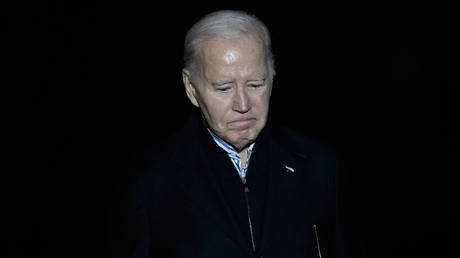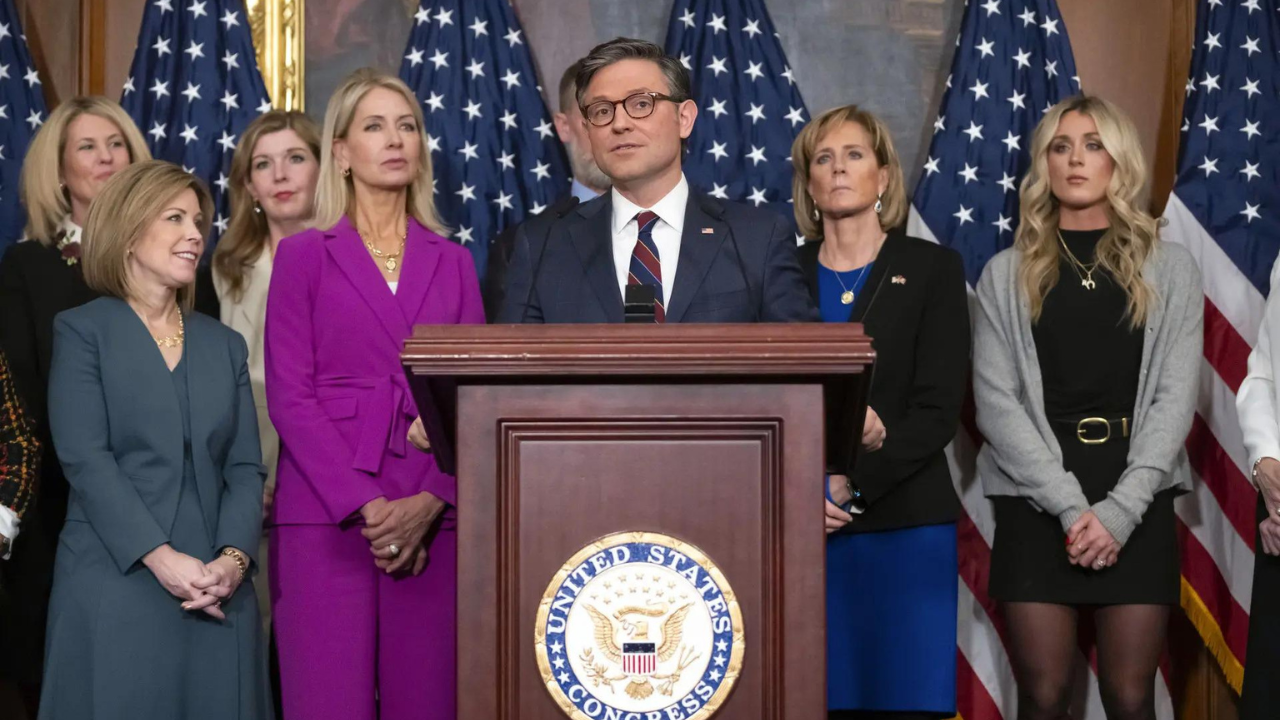ARTICLE AD BOX
The American military is facing a drop in recruitment and risks getting spread too thin in its drive to dominate the globe
Amid hopes that the 2024 US National Defense Authorization Act (NDAA) would witness an uptick in troop strength, just the opposite has occurred, as military brass fear what messages a shrunken force will send to America’s enemies.
Not since before World War II has the US fielded such a small military force, and not since World War II has the US military been spread so thin around the world.
Personnel slashes to the US Army have been the deepest. The national defense budget must be satisfied with a force of just 445,000 active-duty soldiers, down more than 40,000 (8.4%) in three years.
Meanwhile, the Marine Corps is set to shed 8,900 active-duty service members from fiscal 2021, a 4.9% reduction, while the Air Force is prepared for a loss of 13,475 airmen, a 4% drop. Finally, the Navy is scheduled to have 10,000 fewer sailors, down 2.9%.
All told, the total number of active-duty soldiers in the armed forces will decrease to 1,284,500 in fiscal 2024. That’s a decline of almost 64,000 troops in the last three years and the smallest total for America’s military since 1940. For perspective, America’s top perceived ‘adversaries’, Russia and China, have 1.15 million and 2.35 million active duty troops, respectively.
Such a precipitous drop in troop strength presents major challenges for any country, but especially for one with serious imperial ambitions. The problem with recruitment does not seem to be caused by a lack of funds. The defense policy bill passed last month provides a jaw-dropping $886 billion for defense programs, which includes a 5.2 percent boost in salaries for service members, the largest increase in 20 years.
Read more Will 2023 be known as the last year of global US hegemony?
Will 2023 be known as the last year of global US hegemony?
Despite the promise of more money, the recruiting prospects for the immediate future looks bleak to the point that lawmakers and military leaders have floated the idea of allowing illegal immigrants, which are often purported to have terrorist and gang members among their ranks, to serve as a stopgap solution to the problem.
“Do you know what the recruiting numbers are at the Army, Navy and the Air Force,” asked Democratic Senator Dick Durbin last month. “They can't find enough people to join our military forces. And there are those who are undocumented who want the chance to serve and risk their lives for this country. Should we give them a chance? I think we should.”
The Democrat’s ‘solution’ to the problem conveniently ignores the question: what happened to the recruiting pool inside of the US in the first place? Why have so many young men and women decided to shun the life of a professional soldier compared to previous times? Does it have anything to do with the fact that confidence in the US military has plunged to its lowest levels in two decades? Have young men and women come around to the conclusion that the true nature of the US military is not to ‘defend the homeland’ from would-be attackers, but rather to dominate the entire globe with its imperialistic mindset?
Then there are questions about the mental and physical health of America’s youth, plagued as they are with alarming rates of obesity, drug use and mental health issues. These problems are symptomatic of a nation that is experiencing the unraveling of its entire social fabric.
“The problem lies within American society, or rather, the lack thereof,” writes Brian Berletic, a geopolitical analyst and former US Marine. “It suffers from a general unraveling of family values, work ethic, and social cohesion. Additionally, there is a collapse of America's education system, including vocational education, which creates a shortage of qualified candidates for economic and military activities.”
Read more The US can’t stop China’s rise, but it will cripple the EU while trying
The US can’t stop China’s rise, but it will cripple the EU while trying
Indeed, it would seem far more beneficial for everyone if Washington would shut down some of its global empire of military franchises (the US has around 750 military bases located in 80 nations throughout the world) and free up additional funds for rejuvenating its crumbling inner cities and educating its populace. After all, no military can run on machinery alone; it needs healthy, well-educated professionals in the decision-making process.
Meanwhile, other people point to the woke mentality that has – against all expectations – infected the highest levels of the military apparatus, a phenomenon that the media regularly reports on in a totally uncritical fashion. Yet in much the same way that ‘wokeness’ has had a disastrous impact on the bottom line at Disney and Budweiser, for example, it is no stretch of the imagination to say that people are put off by a military career for exactly the same reasons.
This leads to the question of patriotism at a time when public schools are teaching kids to hate their country. Can these youth be expected to sacrifice their comfortable, sedentary lifestyles in defense of their homeland? A quick scroll through the self-obsessed world of Instagram, TikTok and Facebook shows where the nation’s attention is focused, and it does not give one cause for hope.
All things considered, the US and the world would be a much safer place if Washington recalibrated its foreign policy to a more defensive posture. It could turn down the global temperature by bringing home some of the troops, while freeing up the funds for a much-needed national revitalization program at home. This would provide the troops it needs for a much-needed ‘isolationist’ foreign policy that would apply the brakes on military adventurism at a time when a global conflagration - possibly with Russia or China or both - looks increasingly likely. Instead, the US will always opt for militaristic imperialism, and like empires of the past that will be its ultimate downfall.
.png)
 1 year ago
6
1 year ago
6








 English (US)
English (US)